Ron Barassi remembers life in Melbourne when the Demons won the 1964 premiership
When Melbourne great Ron Barassi won the Dees’ last grand final players smoked at halftime, a pie at the game cost 20 cents and he got paid $40 a match.
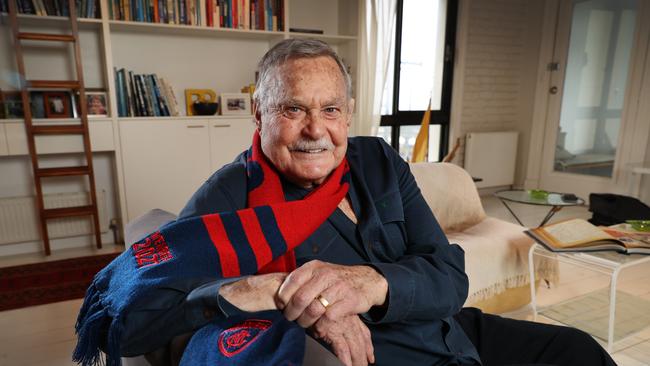
Victoria
Don't miss out on the headlines from Victoria. Followed categories will be added to My News.
Footy legend Ron Barassi fondly remembers the day he captained Melbourne to its last premiership.
On the morning of September 19, 1964 the AFL great drove his two tone green FX Holden sedan to a friend’s house to drop off tickets, pulled into Yarra Park and strolled though the crowds into the MCG.
Players worked full time then, with footy a weekend pastime.
Fans who squeezed into the stands paid the equivalent of 20 cents for a beer or a pie.
The Beatles, in the midst of their only Australian tour, had recently given Melburnians something different to shout about.
The West Gate Bridge was still 14 years away from opening and the “six o’clock swill’’ a matter of law when the Demons lined up in their eighth grand final in 11 seasons.
It was a different time — for footy and the marvellous city of Melbourne.
“In my playing days, some players had a cigarette at half time,’’ Barassi said.
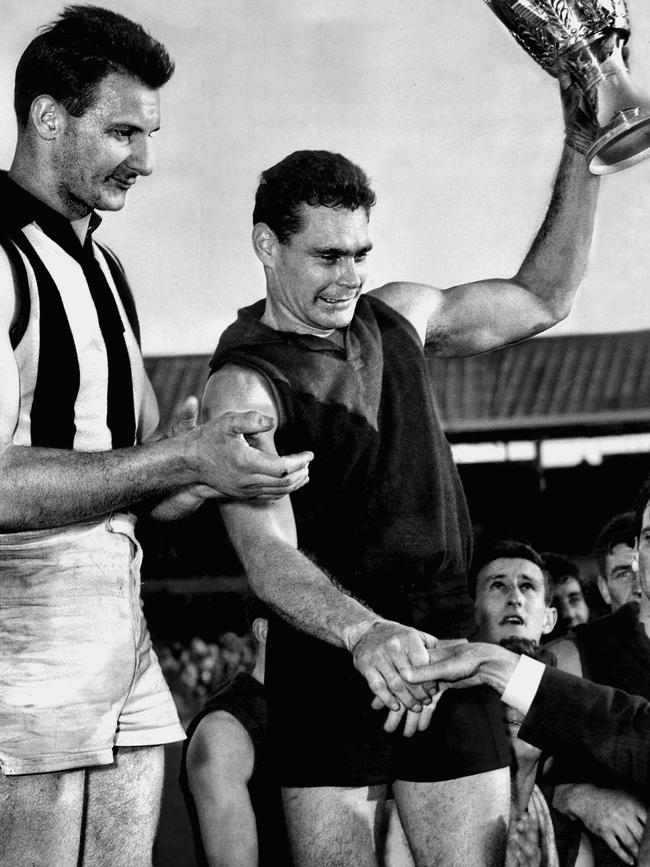
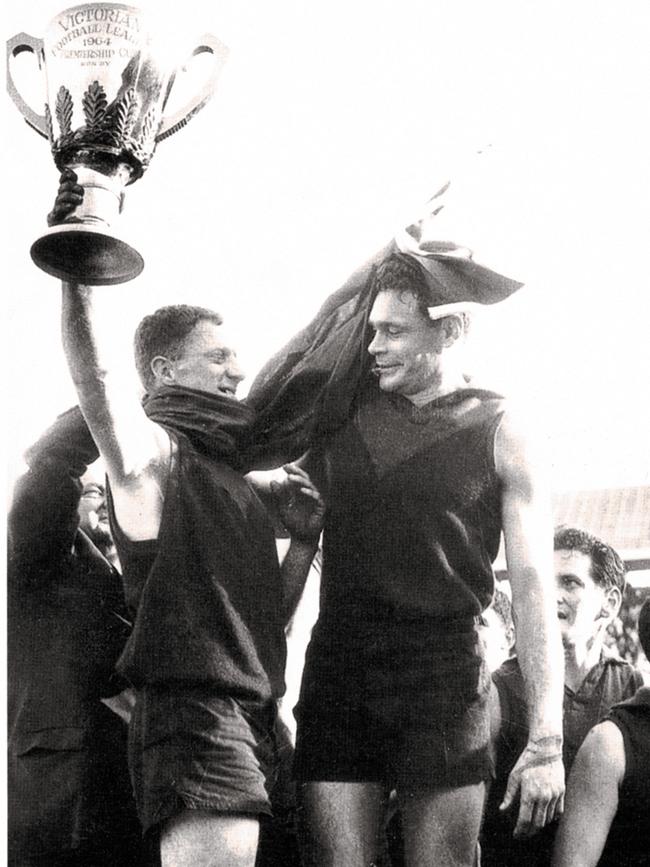
“There was very little money in the game then.
“We played to win for the love of our club, our teammates, of the game itself.’’
In terms of football, Barassi reckons the biggest difference between now and then is professionalism.
“We were amateurs,’’ he said.
“Players had full-time jobs. Football was part-time.’’
Fitness levels 57 years ago depended on individual commitment, rather than sports science or spread sheets.
According to Barassi, it was simpler times.
“We used to socialise with opposition players, and even umpires, after the game,’’ he said.
“Today it’s a professional sport. Players and coaches are full time. There are more coaches, support staff, more resources, more expertise, more technology.’’
The gulf in technology between now and 1964 is vast.
Years away from having colour TV let alone internet or mobile phones, Melburnians of the time flocked to the theatre and the footy.
They still had four years to wait before the National Gallery of Victoria — the most visited public gallery in Australia — opened in its current home.
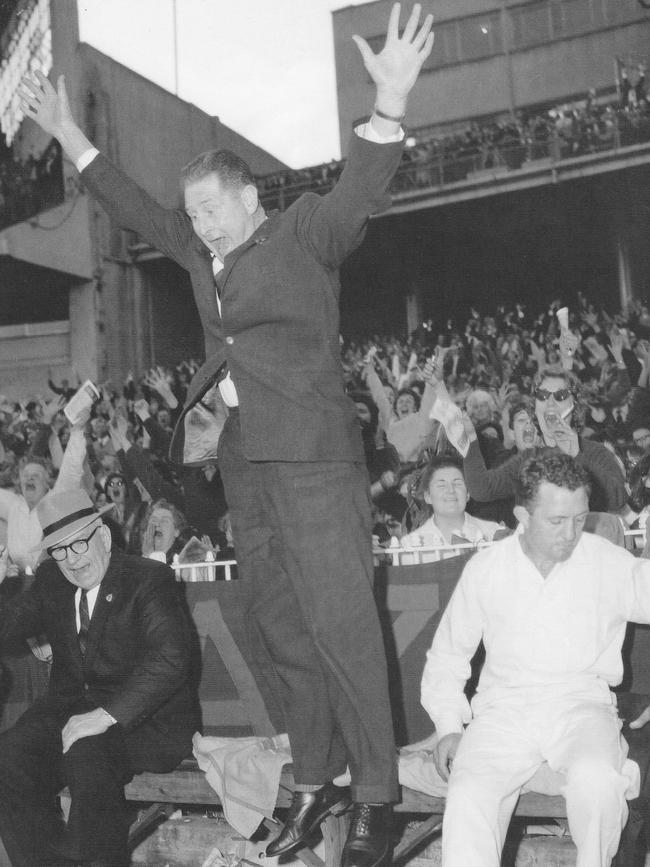
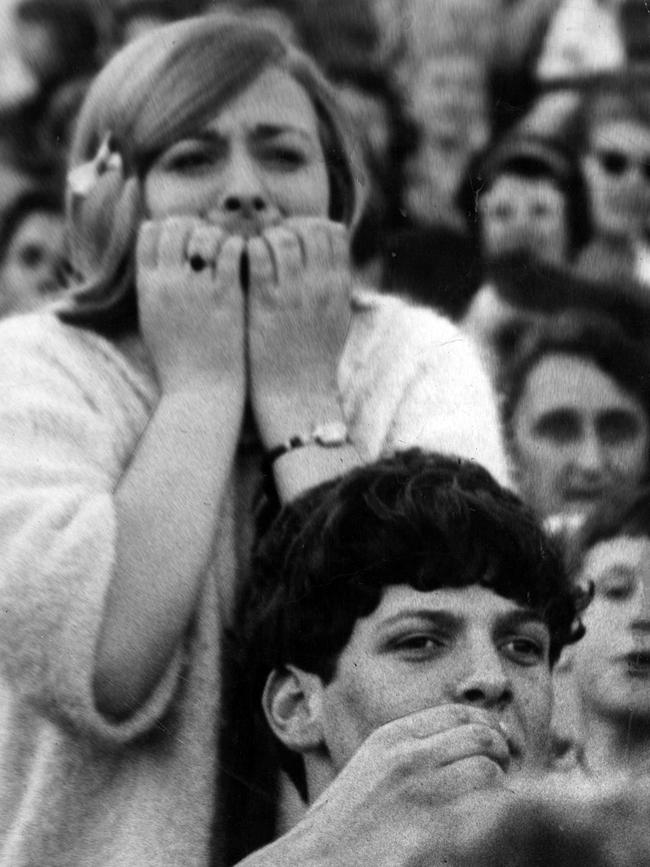
Far from player’s running patterns, heart rates and diets being monitored, ‘64 premiership vice-captain Hassa Mann recalls eating steak the night before a big game and drinking Sustagen pre-match.
“It was a sport, not a business like it is today,’’ he said.
“We all had regular employment, trained basically two nights a week and played on a Saturday, unlike today where they are probably training four days a week and playing on the fifth.’’
Barassi – as captain – would have been paid the equivalent of about $40 a match.
Mann, who walked to training after work as a city banker and shared a ride to matches with teammates, said modern players “wouldn’t do their shoelaces up’’ for the wages of yesteryear.
But the “very little money in it’’ went further.
House prices – the bane of Melburnians nowadays trying to break into the market – were loads cheaper.
The Sun newspaper on the Monday before the ‘64 grand final reported the “largest sales of property’’ auctioned that weekend were in Northcote, Ivanhoe, Camberwell and Kew.
They each sold for less than $13,000, the modern day equivalent of between $296,000 and $373,000.
Most houses were even cheaper, including homes sold at Richmond for today’s equivalent of $102,081, Moonee Ponds ($96,330) and Albert Park ($76,201).
Commonwealth Bureau of Statistics’ data from the September quarter 1964 reveals a loaf of bread cost about 16 cents.
Plenty else has changed in Melbourne in the 57 years since the Dees last success too.
Heritage landmarks rivalling Manhattan for opulence such as Scott’s Hotel in Collins St, frequented by the likes of Dame Nellie Melba and English cricket royalty W.G Grace, made way for high rise offices in the 1960s and 70s.
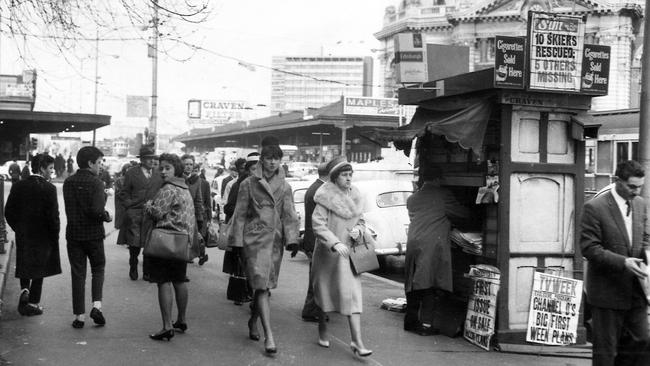
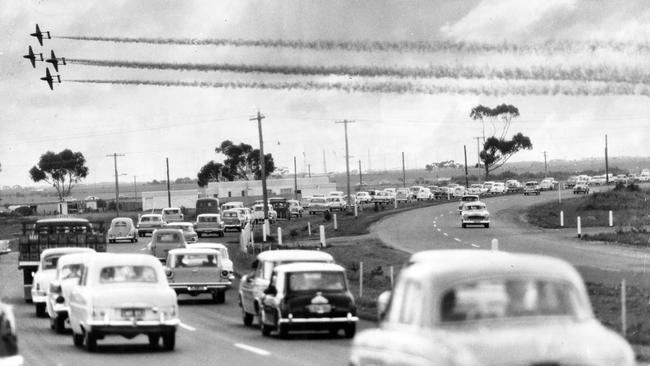
The Federal Hotel Coffee Palace, built in 1895 and boasting guests such as Mark Twain and Alexander Bell, was also shown the wrecking ball.
Barassi sees modern Melbourne as a different place to the town that first lionised him.
“The architecture and skyline is dramatically different,’’ he said.
“So many ornate and grand Victorian buildings have fallen to be replaced by skyscrapers.
“There’s more traffic, more noise, more graffiti. It was a cleaner, more liveable city.
“It seemed a simpler, more innocent time. Looking back, it was more like a big regional town.”
The 1964 premiership was a VFL flag, delivered long before the game went national, with 18 teams in five states.
Back then, the Swans called South Melbourne home instead of Sydney.
The Lions were part of the Fitzroy fabric at the Brunswick St Oval and a national women’s league would have seemed as far fetched as a club on the Gold Coast.
There was not yet a Great Southern Stand or even WH Ponsford Stand at the MCG, with many of the 102,471 people packed into the ground for the ‘64 final standing.
The MCC currently has 140,000 men and women on its books but membership was capped at 9800 members in 1964.
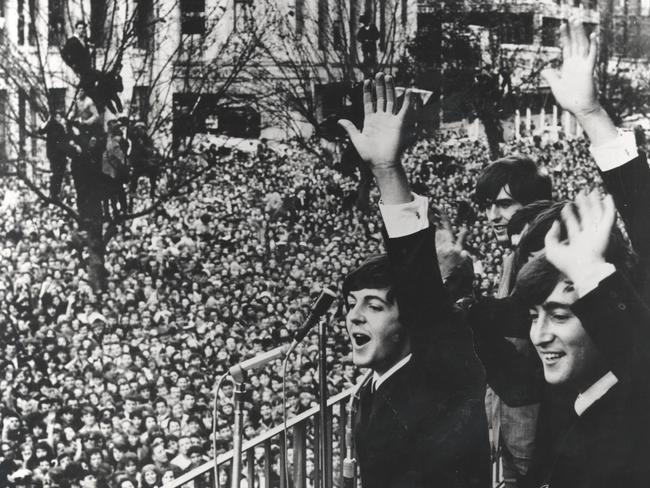
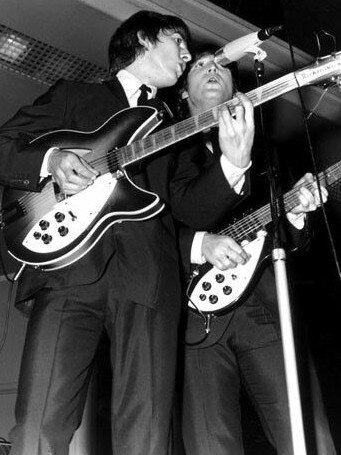
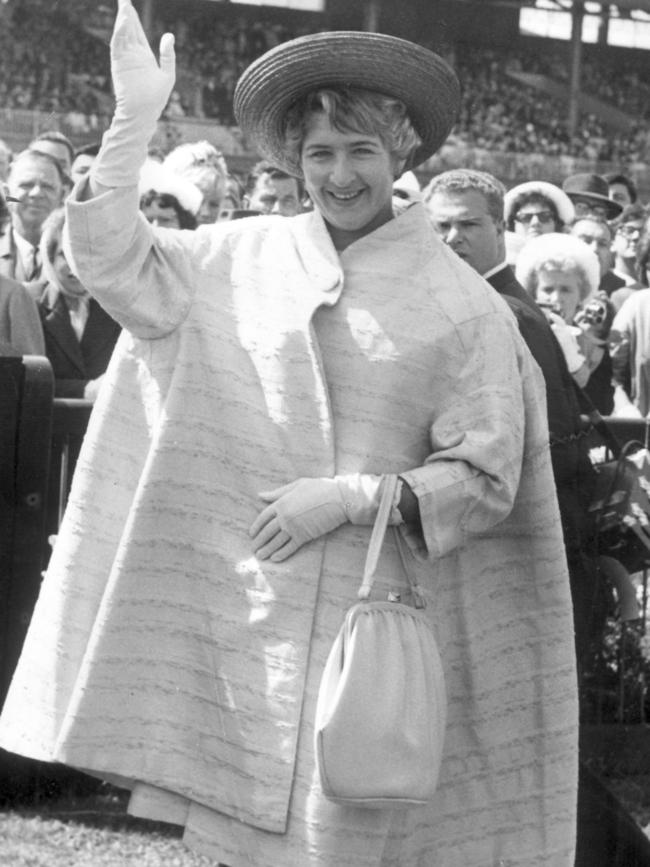
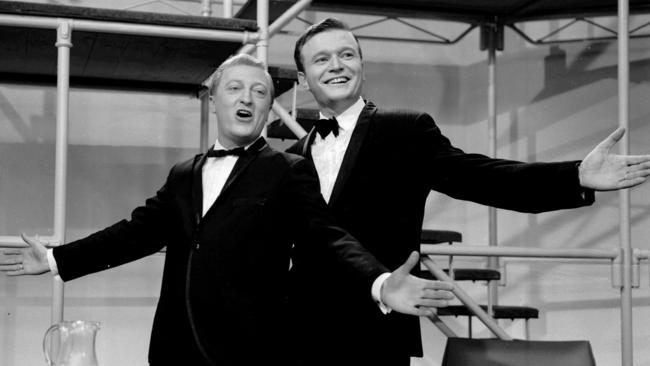
When the Demons were last kings, two grand final teams being led by women would have seemed as foreign as the match being played in Perth, in a stadium named after a mobile phone.
But this weekend, Kate Roffey and Kylie Watson-Wheeler will make history as female presidents of Melbourne and the Western Bulldogs.
In the 1960s, Melburnians had to tune into the radio or buy a record to hear Elvis Presley.
Now, we stream music instantly on our phones.
Festival Hall – stage for the Beatles barnstorming Melbourne tour – is no longer a music venue, lost like many of the city’s cultural institutions.
The Australian Open tennis was played in Brisbane in 1964, instead of its world-class Melbourne Park home.
The Australian Grand Prix was staged at Sandown, instead of Albert Park.
The race that stops a nation was, as always, at Flemington, in front of a crowd of 85,103.
But there was no VIP Birdcage, swanky Member’s Stand or “influencers’’ more interested in their Instagram account than the equine action.
The Ballroom above Flinders St Station, recently restored and reopened, was in its glory days as the Dees danced with Collingwood for the 1964 flag.
People paid in pounds, shillings and pence, with decimalisation not introduced until 1966.
“Our’’ Dawn Fraser was Australian of the Year.
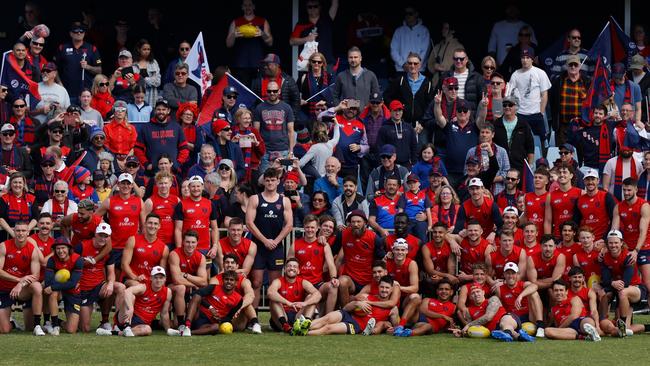
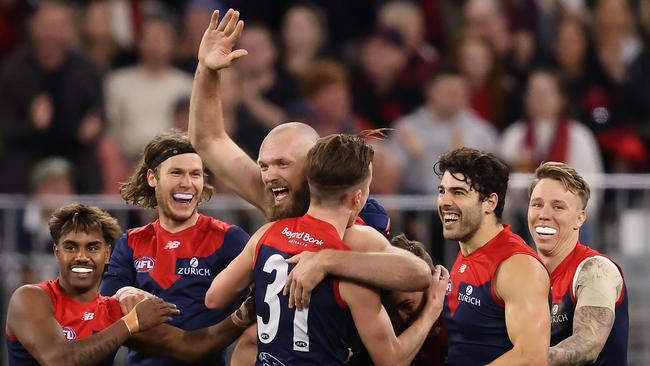
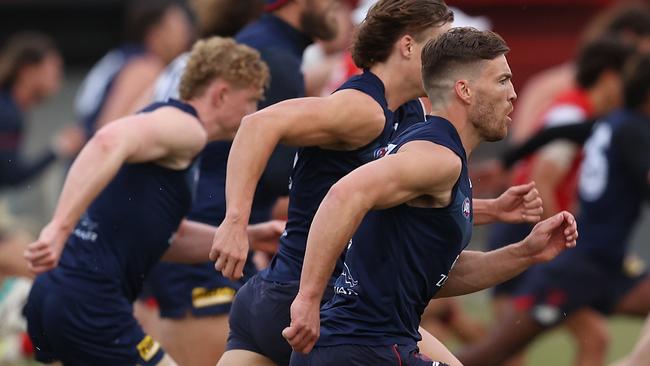
TV cop drama Homicide began a 12 year run, weeks after the grand final.
And in November, Prime Minister Robert Menzies ushered in the reintroduction of national service.
But while Melbourne was younger, footy was still a religion of sorts.
Before playing for the Bulldogs and the Dees, Brownlow Medallist Kelvin Templeton grew up a Melbourne fan, listening to the ‘64 final on the radio in the small dairy farming town of Tyers, near Traralgon.
“There wasn’t a live TV telecast and I can’t recall there even being any highlights on television, which of course was black and white’’ he said.
“There was certainly a wood fired oven in the kitchen, probably an old Kelvinator fridge, a laminex kitchen table and tins for flour and sugar and biscuits.’’
While home decor and fashions have changed, Visit Victoria chief executive Brendan McClements said Melbourne was still “a city that you feel’’, with “a vibe like no other’’.
“Melbourne’s architectural charm, creative soul, dinging trams, and tribal passion for footy have only become stronger,’’ he said.
Barassi and his teammates would never have believed their beloved Dees would go more than five decades without another flag as he lifted the 1964 premiership cup.
“We expected this level of success would go on forever,’’ he said.
And had some sage advice for the modern day Demons, determined to go back to the future for a grand old flag.
“Soak up the atmosphere, embrace it,’’ he said.
“Use it as fuel … give it everything you’ve got.
“You’re going to win this.’’





